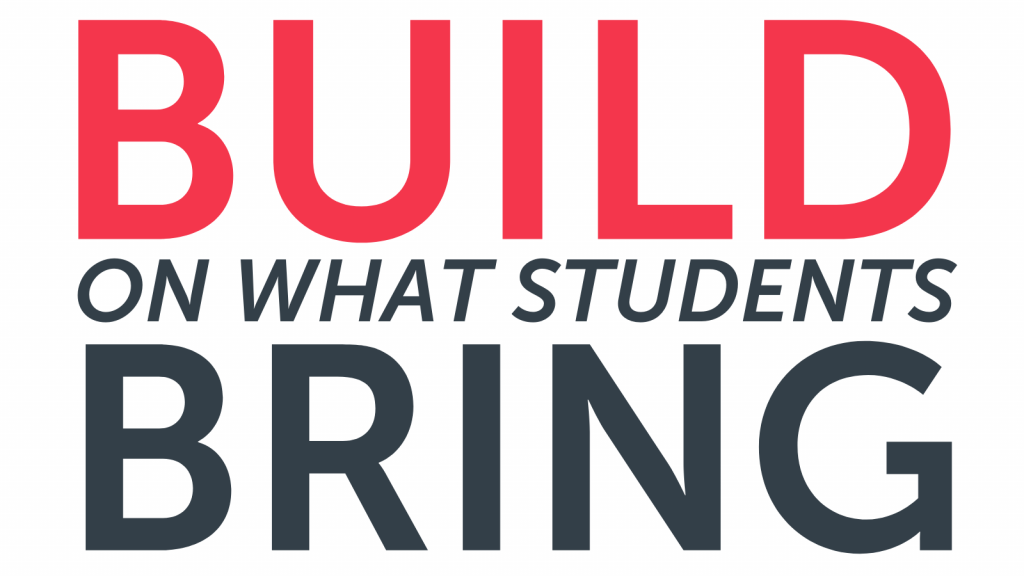How Can We Build on What Students Bring?


We know that learning never stopped for students even as many schools were closed. Throughout the pandemic, students have mastered new technologies, taken on new challenges, and practiced managing stress and expressing their feelings.
How can we build from what students bring?
Instead of just thinking about loss of learning, let’s focus this year on building from students’ new skills and experiences and promoting growth, helping students to become engaged, effective learners.
It’s important to understand and embrace everything students are bringing to school this year — the triumphs and challenges, the passions and needs.
Two ways to do that are by supporting student agency and implementing a school crisis plan that allows students who have urgent needs to get help when they need it.
Cultivating Students’ Unique Strengths
We can cultivate students’ strengths and support student agency by meeting each student where they are, leveraging their assets, and designing experiences that build skills in ongoing, integrated, and increasingly complex ways.
Learning engages multiple, cross-wired, functionally-integrated neural systems, including cognitive, affective, social and emotional processes. Experiences can shape these processes, which include both foundational skills, such as stress management and self-regulation, as well as higher-order skills, such as self-direction and curiosity. Developing these skills requires attention, support, and thoughtful engagement with students as active drivers of their own growth and development.
The Turnaround for Children Toolbox includes resources to apply the concept of supporting student agency to educators’ work:
Adult Skills Self-Assessments
When adults develop self-awareness of how they use holistic skills and mindsets, including their strengths and weaknesses, they are better able to teach and support these skills.
Scenario Analysis
Opportunities to support holistic skills and mindsets show up authentically all the time across the school day. Use these resources to analyze how supports that build student skills and mindsets be integrated.
Integrated Skills Planner
The science of learning and development tells us that students need opportunities to learn and practice skills while they are calm and relaxed. Use this tool to plan for integrated skill development.
Co-Regulation Planner: Executive Functions to Self-Direction
These tools support a co-regulatory approach to a student’s skill development. Included are sample strategies for supporting executive functions, providing the foundation for self-direction and agency.
Support Student Strategies: Stress Management to Resilience
These tools guide an asset-oriented approach to developing a repertoire of shared skill development strategies with students. Included are examples for supporting stress management, and, in turn, resilience.
Meeting Students’ Unique Needs
A tiered system of supports provides a framework for an adaptive, responsive continuum of integrated supports for all students. Tiered support systems are developed and implemented in service of holistic outcomes — social, emotional, motivational, cognitive, academic, and so on — and in service of equity, so that all students can thrive.
A tiered support system includes different levels of support. But there are times where a student is experiencing disruptions in their health, mood, behavior, and/or skill development and needs more urgent support.
That’s where a school’s proactive crisis plan comes into play. Leveraging a school’s existing system for supporting students in the design of a crisis action plan allows schools to provide a timely response to urgent needs. It’s like having a broken leg and being able to get help quickly in the emergency room rather than having to call your primary care physician and wait for an appointment to first get a referral to the emergency room.
Having a crisis plan is not just important in this moment, but also long-term, given the scope of student need in our country. Each year in the United States, 35 million children cope with some form of traumatic experience.
Last fall, Turnaround created a Crisis Action Pack set of tools that enable schools to identify which students are in need of immediate support, along with guidance on what school leaders should consider to be responsive to the needs of students, families, and staff.
The crisis action pack includes tools for school leaders, educators, and school support staff on re-entry guidance, the referral process, engaging families, and more.
Now is the time to focus on building students’ knowledge, skills, and mindsets and to really get to know and learn all about them rather than just focusing on trying to solve challenges. We can harness every student’s unique passions and motivations to ignite learning.

Share This Story